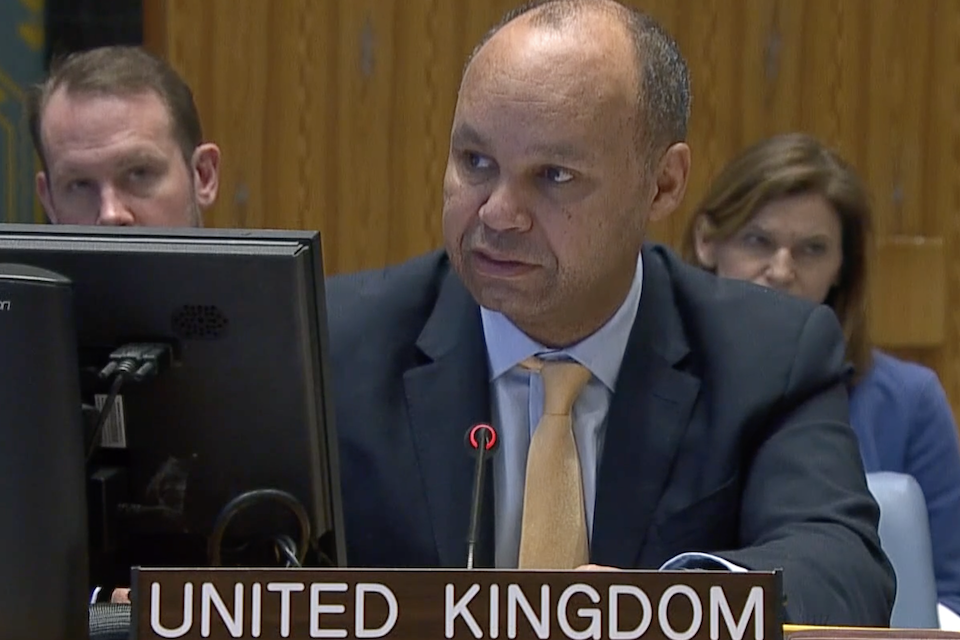The ‘New Agenda for Peace’ is an opportunity to put prevention centre and to save lives down the line: UK Statement at the UN Security Council
Statement by Ambassador James Kariuki at the Security Council Open Debate on Peacebuilding and Sustaining Peace

Thank you, President. I am grateful to the Deputy Secretary-General, Peacebuilding Commission Chair, and Ms Ndiaye for their briefings.
As we all know, the cost of conflict is unsustainable – both in terms of human suffering, and the resources available for peacekeeping and humanitarian aid. The ‘New Agenda for Peace’ is an opportunity to put prevention front and centre, to save lives and greater costs down the line.
President, we understand that the concept of conflict prevention can raise sensitivities. But nationally-owned peacebuilding processes can bolster sovereignty and strengthen state resilience. This is at the heart of the Sustaining Peace framework articulated by the General Assembly in 2016 – which emphasises working with countries to meet their needs, shared responsibility and a whole-of-system approach. Fragilities are universal, and sustaining peace requires constant work in all countries.
Working together, the UK sees potential for greater impact in three key areas.
Firstly, we should support efforts to strengthen UN foresight capabilities to anticipate risks, and inform responses. We can better leverage data and technology to understand conflict risks, including in places where climate change is exacerbating those risks. And we can ensure the UN has the right mediation capacities, and wider networks, to help resolve conflicts before they escalate. Inclusive approaches and investing in women and youth peacebuilders is a priority, because we all know the evidence that this leads to results that are more durable.
Secondly, the UN family – ourselves included – must fully implement the Sustaining Peace agenda. This includes empowered Resident Coordinators leading joined-up peacebuilding approaches to maximise the impact at country-level of development, diplomatic and other efforts. The UK has long invested in the Peacebuilding Fund, with its critical role in incentivising UN coherence and underpinning nationally-owned prevention strategies. But coherence can also be driven and modelled better in New York among all parts of the UN system, including the Agencies, Funds and Programmes.
Finally, this Council can do more to support conflict prevention by being aware of emerging risks, and working in cooperation with relevant UN bodies and regional organisations to drive integrated responses. The Peacebuilding Commission is also a critical part of this equation – both in its own right, and through its advisory role to the Council. The United Kingdom strongly supports a more active role for the Commission. South Sudan’s active engagement is a welcome development and further example of the increasing interest in peacebuilding support.
President, the New Agenda for Peace is an opportunity to reinvigorate our shared commitment to sustaining peace. I welcome Japan’s initiative today to help move forward ideas. We all need to adapt to emerging threats and risk multipliers, investing in and prioritising prevention.
Thank you.